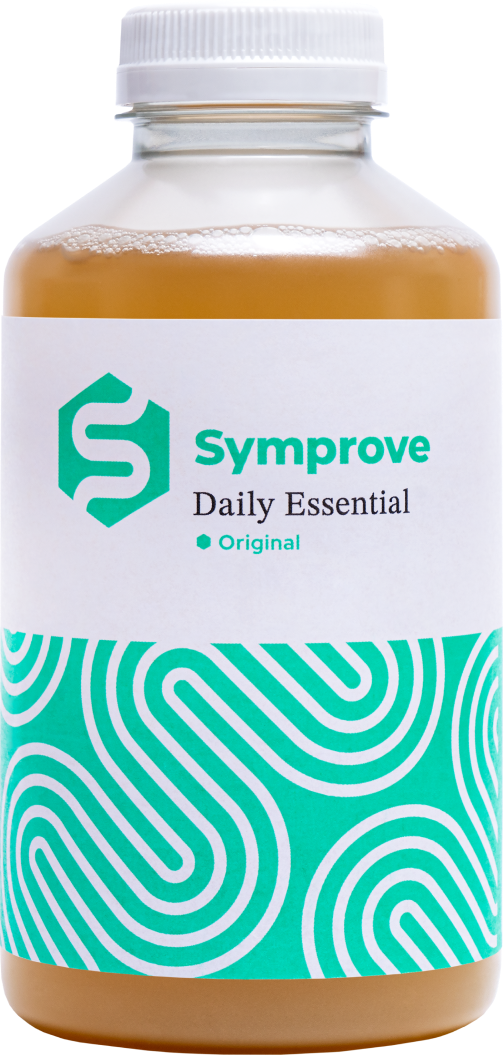
Figure 1. The Atopic March (1)
Eczema is a complex, multifactorial disease involving several factors (Figure 2). Often individuals living with eczema have genetic risk factors predisposing them to conditions affecting the skin barrier or immune system functioning. A strong relationship between the gene encoding filaggrin protein has highlighted interest between a compromised skin barrier, and eczema. Furthermore, environmental factors such as temperature and irritants are thought to be contributing factors. More specifically, environmental factors and microbial exposure such as day care attendance, exposure to farm environments and animals, breastfeeding, and antibiotic exposure have all been identified in playing an important role in the composition of the gut microbiome. Gene-environmental interactions are indicated by the higher prevalence of eczema in Westernised countries.

Figure 2. The multifactorial pathogenesis of atopic dermatitis (2)
The human gastrointestinal tract contains a highly selective ecosystem, comprised of trillions of microbes and their genetic material, collectively known as the gut microbiome. Research has shown that children with eczema have a distinct gut microbial composition, containing increased numbers of aerobic bacteria such as Staphylococcus aureus and fewer anaerobic bacteria such as Bifidobacterium or Bacteroides. Further studies have correlated a lower number of Bifidobacteria species with increased eczema severity, and low microbial diversity in the neonatal period with eczema onset within the first year of life. Therefore, it is proposed that the prevention of eczema should begin as early as possible, potentially in utero, by intervening with appropriate strategies focusing on expectant mothers.
Increasingly, research does indeed show that our gut microbiome begins to form in utero. A recent systematic review identified that factors including maternal probiotic and antibiotic use, dietary intake, gestational weight gain, diabetes, and mood, can all influence the infant’s gut microbiome.
While medical management is often the first-line approach for treating eczema, the use of probiotics is an alternative approach that has gained traction over the years. Probiotics are live microorganisms, which when taken in adequate amounts may have beneficial effects on our health, through supporting a symbiotic gut microbiome. Probiotics come in many forms such as liquids, powders, capsules and are strain-specific in their effects and are regarded as safe throughout the lifespan, including pregnancy, in healthy individuals. This article will explore the evidence on the efficacy of probiotics in the prevention and treatment of eczema.
Probiotics in the Prevention of Eczema
Maternal probiotic use during pregnancy has been shown to influence the foetus’ microbiome, for example supplementation of Lactobacillus rhamnosus GR-1 from 12-24 gestational weeks to 1 month postpartum, found the infants microbiome at aged 10-25 days, had a 3 fold increase in the relative abundance of Bifidobacterium and a 16.8-fold decrease in Enterobacteriaceae (P<0.05), compared to controls.
Regarding the influence of probiotic supplementation during pregnancy on later eczema risk, one study supplemented pregnant women daily with a probiotic mixture of Lactobacillus and Bifidobacterium strains (to total 1010 organisms per day) or a placebo from 36 gestational weeks and to their infant to 6 months old. No difference was found between the two groups suggesting the probiotic did not prevent eczema during the study, however, skin prick sensitivity tests at 2 years old were reduced in the probiotic arm vs the control arm, suggesting administration of probiotics in early life may affect atopic sensitization, however a more comprehensive understanding is required. This study did not look at the infant’s gut microbiome composition, further the limitations of skin-prick tests must be considered.
Alternatively, a recent systematic review, including 21 studies, showed that probiotic administration to a combination of pregnant mothers, breastfeeding mothers and children had the most influence at reducing the risk of those infants developing eczema. This included results of finding it most effective in high-risk populations, but also effective in non-high-risk groups too. Mixtures of probiotic strains were shown to have a greater effect than single strains. While an earlier systematic review disagrees with this finding no evidence of a protective effect of perinatal probiotic use and allergies, it is consistent with the findings of other more recent systematic reviews, suggesting as the body of research grows, that there is a potential indication for probiotic supplementation during pregnancy to prevent infantile eczema.
Probiotics in the Treatment of Eczema
Infants and children
Our gut microbiome continues to develop over the first few years of life, corresponding to a critical period for the development of our immune system where several factors including mode of delivery, means of feeding, and type of food, affect our gut microbiome composition. Specifically, several systematic reviews have investigated the effect of probiotics on the gut microbiome for treating eczema in paediatric populations. Interestingly, one conducted in 2017 highlighted the importance of applying caution rather than generalising results between populations. For example, when using the SCORAD index as a marker for the severity of eczema, no effect was found in Europe, whereas scores were significantly lower in Asia. Furthermore, while Lactobacillus rhamnosus GG and Lactobacillus plantarum were found to have no effect on SCORAD index values, in contrast Lactobacillus fermentum, Lactobacillus salivarius, and a mixture of different strains were found to have significant effects on SCORAD values in children (3). Additionally, two further systematic reviews also found large heterogeneity in the research while highlighting the potential beneficial effects of Lactobacillus specific on eczema (4, 5). For clinical practice, due to the heterogeneity of the research, including use of different strains, durations, ages of participants, as yet specific recommendations cannot be made in terms of using probiotics to treat eczema.
Adults
From an adult perspective, research is far more limited. A 2018 Cochrane review found only 6 out of 39 RCTs assessed adults, and only up to aged 55 years. This paper concluded that probiotics probably have little effect on eczema symptom severity rated by the patient, and no difference to their quality of life. Therefore, the use of probiotics for the treatment of eczema is currently not evidence based. Regarding the safety of probiotics, no RCT reported any unsafe effects. A small number of case reports suggest adverse effects in certain population groups including reports of probiotic sepsis and bowel ischaemia (6). A comprehensive report on probiotic safety concluded that there is a lack of research on the safety of probiotics and reporting of adverse effects they have in intervention studies. While available evidence suggests there are no increased risks with taking probiotics, rare adverse events are difficult to assess. Overall, the literature is not currently extensive enough to fully answer questions on the safety of probiotics.
Final words
While there continues to be significant heterogeneity between individual studies and more research is needed to determine optimal formula, duration, administration route and time for initiation, to achieve the optimal long-term effect, the majority of research suggests the use of a probiotic during pregnancy to reduce the risk of eczema in high risk infants may well be beneficial.
Resources
- National Eczema Association. A UK charity supporting individuals impacted by eczema.
- Elias et al., (2011). Summary of research on the safety of probiotics during pregnancy and lactation.
- Makrgeorgou, et al., (2018). Probiotics for treating eczema.
References
- https://www.ncbi.nlm.nih.gov/pmc/articles/PMC5806141/
(Figure 1) - https://www.ncbi.nlm.nih.gov/pmc/articles/PMC3206255/
(Figure 2) - https://pubmed.ncbi.nlm.nih.gov/28932705/
- https://onlinelibrary.wiley.com/doi/epdf/10.1111/pai.13305
- https://onlinelibrary.wiley.com/doi/full/10.1111/ijd.13873?saml_referrer
- https://www.ncbi.nlm.nih.gov/pmc/articles/PMC6517242/
The above blog was written in association with www.begoodtoyourgut.com.uk intern Emilia Fish BSc (Hons) Food Science & Nutrition, ANutr
website: www.nutritionnourishment.com


